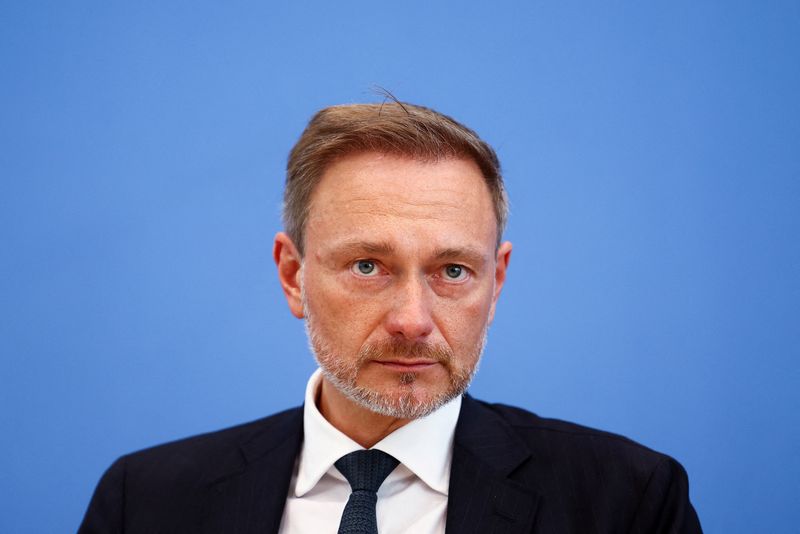BERLIN (Reuters) - Germany will set up a new body, the Federal Bureau of Financial Intelligence, under planned legislation to combat money laundering, according to a draft of the law seen by Reuters.
The new office, to be set up next year, will centralize monitoring and analysis of money laundering and sanctions enforcement. The target is to have 1,700 employees, with offices in Dresden and Cologne, a finance ministry spokesperson said.
Germany was criticised last year by the global Financial Action Task Force (FATF) for failing to do enough to tackle money laundering despite being one of the world's biggest cash centres.
The assessment highlighted a series of failings, including a lack of control over those who handle large sums of money, such as estate agents, adding that while Germany understood the risks, it had not done enough to tackle them.
In response, Finance Minister Christian Lindner said Germany would centralise control, install additional staff and modernise the authorities' technology.
Currently two separate bodies are responsible for monitoring potential money laundering and meting out sanctions, the Central Office for Sanctions Enforcement and the Central Office for Financial Transaction Investigations.
Germany's finance ministry, which is drawing up the legislation, will put more than 700 million euros ($775.60 million) towards its implementation between 2024 and 2027, according to the draft legislation.
The legislation will include a new procedure for investigations to clarify the origin of funds spent for the acquisition of suspicious assets of high value, government sources said.

The Federal Bureau of Financial Intelligence will also offer training courses to develop specific expertise in combating money laundering.
($1 = 0.9025 euros)